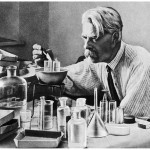In my previous post titled an introduction to the concept of emergence, I have quoted a formal definition of emergence. Using examples from evolution and stories from the life of the termites, I tried to prepare your mind for a more detailed description and more applied examples of the emergence.
Now it’s the time to talk about the concept of emergence with more examples and look for a practical definition of it.
Imitating Michael Porter’s style, let me start with this question: What Emergence Is Not? Or let’s say in other words: how would we see the world if we don’t use the emergence approach:
Centralized approach to the systems
The centralized approach to the world has been popular since centuries ago:
- The whole world has to have a center and sure it was earth.
- The whole human body has to have a commanding center. In the old times, the heart was supposed to be this center and then the brain took this central position.
- The whole society has a command center. It may be a king in the autocratic societies and the parliament in the democratic ones. But there has to be a center.
The centralized approach has been the governing paradigm for a long time and one of the hardest challenges in understanding of emergence is unlearning this old-fashioned concept.
Reductionistic approach to the systems
Every system can be divided into smaller parts and every part can be studied separately in order to understand the system as a whole.
- To know a watch, break it into the parts.
- To know an organization, take a look at its chart and visit every department.
- To know the human body, try to know the organs and the cells.
Peter Senge states in his highly recommended book The Fifth Discipline, by dividing a cow in two parts you would not have two calves. What lies there would be nothing more than a dead cow. The same metaphor holds true for all the systems. The system as a whole is more than the sum of its parts and this fact is not acknowledged by the reductionist approach.
I have coined the term inferiomorphism to describe misleading results of this mindset.
The objective assumption of the subjective system characteristics
The mass of a brick seems an objective measure. Also the height of a human. Also the RPM of an engine. But what’s your opinion about being alive? or being autonomous? Can I talk about a living state and a non-living state as clear as the solid/liquid state? Is it correct to consider it as a measurable boolean parameter? Can I talk about the meaning of living independent of the observer? Can I define these characteristics based on the characteristics of the parts?
Sure there are objective characteristics in any system and there are subjective ones too. But the people who are not equipped with the emergence approach are in danger of assuming the subjective characteristics as objective ones. I have mentioned some simple examples about this point in my article titled predictability and the meaning of living. But sure we will talk about it with more details in future.
Understanding the emergence concept will lead us to a new world. The world in which most of the currently accepted facts will not be anything more than misleading assumptions.
We will talk about this concept in future articles.





